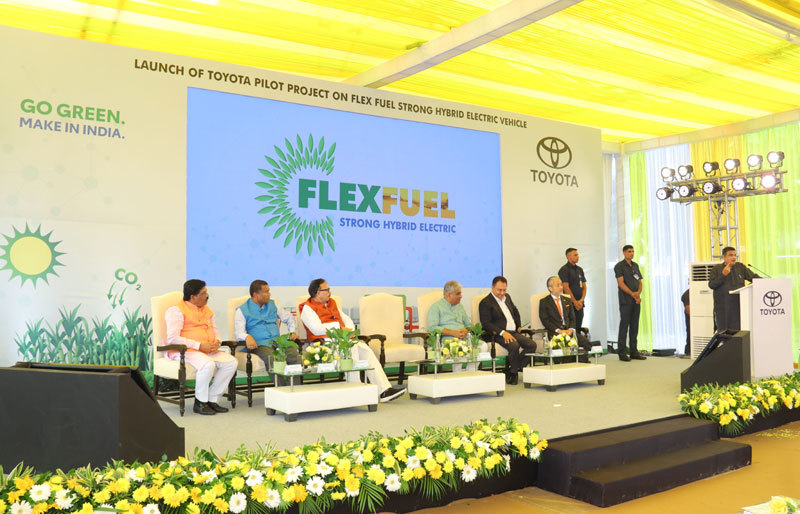Toyota pilots flex fuel hybrid technology in India



SOURCE: Toyota
October 11, 2022
BY Erin Krueger
Toyota on Oct. 11 launched a flex fuel pilot project in Delhi, India, using a vehicle that features its Flexi-Fuel Strong Hybrid Electric Vehicle Technology (FFV-SHEV), which can use fuels containing 20 percent to 85 percent ethanol.
The trial will be conducted using the Toyota Corolla Altis FFV-SHEV, a vehicle currently used in Brazil that has been imported to India for use in the pilot project. According to Toyota, the FFV-SHEV technology currently has the lowest well-to-wheel carbon emissions for any technology in Brazil. The technology features a flex fuel engine and an electric powertrain, providing dual benefits of higher ethanol use and greater fuel efficiency.
India has set a goal to achieve a E20 blend of ethanol by 2025-’26, and has already achieved a 10 percent fuel ethanol blend five months ahead of schedule. The move to E20 is expected to offset the use of 86 million of gasoline, decreasing fuel costs and reducing carbon dioxide emissions. Toyota said the benefits of E20 use can be increased multi-fold through the use its FFV-SHEV technology.
Advertisement
Advertisement
Data gathered through the pilot project will be shared with the Indian Institute of Science, which will conduct a more extensive study of the well-to-wheel carbon emissions of FFV and FFV-SHEV vehicles in India. Toyota also indicated a memorandum of understanding (MOU) has been signed between Toyota Kirloskar Motor and the Indian Institute of Science.
A full copy of Toyota’s announcement is available on the company’s website.
Advertisement
Advertisement
Related Stories
The U.S. EPA on Aug. issued decisions on 175 small refinery exemption (SRE) petitions, granting full or partial exemptions of Renewable Fuel Standard blending obligations for 143 petitions. According to the EPA, 13 SRE petitions remain pending.
The U.S. EPA on Aug. 21 released data showing more than 1.92 billion RINs were generated under the Renewable Fuel Standard in July, down from 2.26 billion generated during the same month of last year.
STX Group, a leading environmental commodities trader and climate solutions firm, on Aug. 13 announced the completion of the first successful delivery of sustainable aviation fuel certificates (SAFc).
FutureFuel Corp. on Aug. 11 releases second quarter results, confirming that its 59 MMgy biodiesel plant in Batesville, Arkansas, remains idle due to market conditions. The company expressed hope the facility will restart in late 2025 or early 2026.
Tidewater Renewables on Aug. 14 announced its renewable diesel facility British Columbia operated at 72% capacity during Q2. The company continues to advance plans to add SAF capacity to facility, with a final investment decision targeted for 2026.
Upcoming Events










